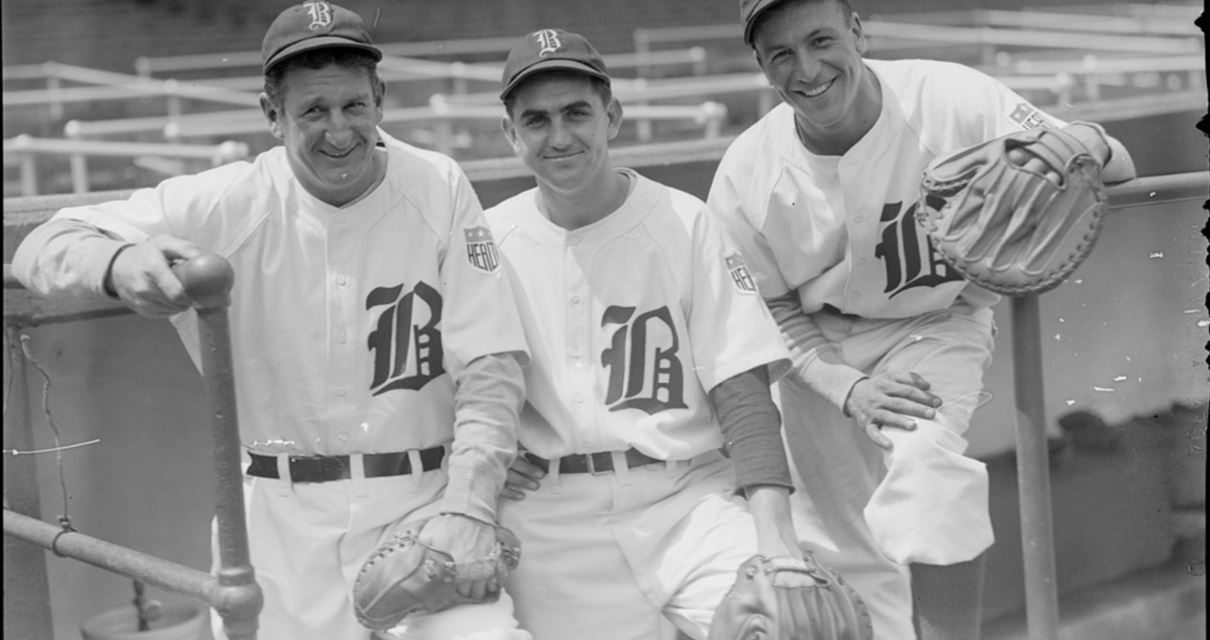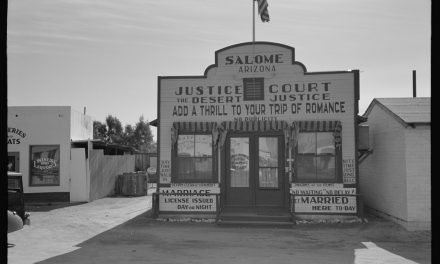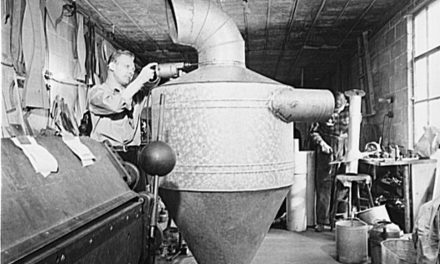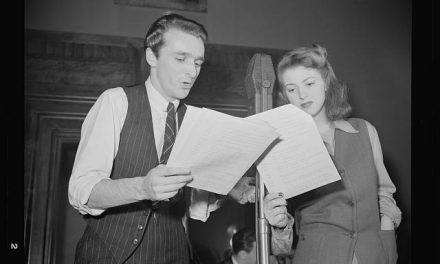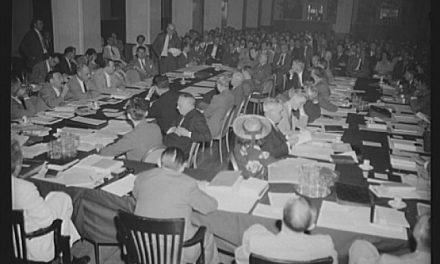Edmund “Bing” Miller felt his back muscles clench as he shifted the heavy army pack that lay on his shoulders. His feet drudged forward in line with the rest of the men, muscles aching and contracting with each swing of the dead weight strapped to their backs. The only consolation in Miller’s mind was the thought that the strength he gained while serving in the Great War might have a positive effect on the professional baseball career he had left back in the states.
Unfortunately for Miller, the strenuous marches with heavy weights on his back did not have the desired effect. This exercise resulted in a knot of muscles along his back and shoulders that made it almost impossible to hit a baseball.
“I always thought I was in pretty good shape to play ball again while I was in the Army, but when I came out I found I was muscle-bound around the shoulders,” Miller said.
This condition left Miller unable to swing a bat around at a pitch and was only remedied when the affected muscles were broken up through therapy. This allowed him to rehabilitate his skills and continue his baseball career.
Miller reassures the baseball-loving public that his experience won’t be the be the same for the boys being drafted from both the Major and Minor Leagues. The marches won’t be as long and the big Army packs are a thing of the past, according to Miller. The players eligible for service should have no difficulty resuming their place on the field
Baseball looks to lose a great deal of players to the war effort. The Florida State, Coastal Plains, and Arizona-Texas circuits are definitely not participating in this season due to lack of players.
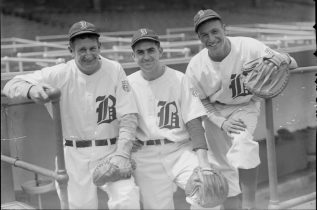
Boston Braves catchers Ernie Lombardi, Clyde Kluttz and Phil Masi on the dugout steps in 1942. From Boston Public Library, photograph by Leslie Jones.
The minors lost 400 players from October 1940 to now due to military services, according to William G. Bramham, President of the National Association of Professional Baseball Leagues. More than 140 players have left the league for more profitable work in the defense industries.
“Many of these men feel that both their time and their money should be given entirely to the war effort,” Bramham said. “We are going to try, however, to keep every league operating that can be kept going and we expect to get the cooperation of the major leagues and of the higher minors to this end.”
This passion is ratified by President Roosevelt who in a letter to the commissioner of organized baseball, Judge Kenesaw Landis, said that he believed professional baseball would lend morale to the hard-working home front. The recreation of going to a ball game is a low-cost and time-efficient way to relax in the eyes of the nation’s leader. Roosevelt also suggested making more night games available so those working the day shift would have the same opportunity to unwind.
Roosevelt not wishing to mix signals regarding the war effort, reminded Landis that players who were eligible for military duty should enter the services even if it meant lowering the quality of the team. This ideology is being supporting throughout the league by general managers who urge their players to serve their country first.
General manager of the Reds, Warren C. Giles spoke strongly to his men and confronted them with their choices. He urged Reds’ players to analysis their situations and justify their reasons for not being in government services. His rhetoric convicted the hearts of many players when he said he would rather forfeit their season than have any men not serve their country.
“We are anxious to provide the public with the wholesome recreation the president referred to in his letter to Commissioner Landis,” Giles said, his passion for baseball as strong as his words of patriotism.
Those benefiting from the sudden loss of experienced ball players are the young boys ages 16 -18, according to Joe Bratcher, owner of the Lake Charles Skippers. They will be noticed in a way that would never have been possible in a time of peace because of this opportunity and attendance at an all-time high. They will be trained the right way from an early age, instead of playing by sandlot rules. This will supply the league with new, well-bred talent for the coming decade.
Sources:
Shirley Povich. “This Morning with Shirley Povich.” The Washington Post, Jan 13, 1942.
“President Says U.S. Needs its Baseball.” The Washington Post, Jan 17, 1942.
Associated Press. “Structure of Minor Leagues Firm enough to Withstand War Strain,
Bramham Finds.” New York Times, Feb 01, 1942.
“Roosevelt Urges Continuation of Baseball during War and More Night Games.” New York Times, Jan 17, 1942.
“On the Line with Considine.” The Washington Post, Jan 28, 1942.
Associated Press. “War Shirkers have no Place in Baseball, Reds’ General Manager Warns His Players.” New York Times, Jan 24, 1942.
Associated Press. “Bush Leagues should Profit from the War.” The Washington Post, Jan 21, 1942.

